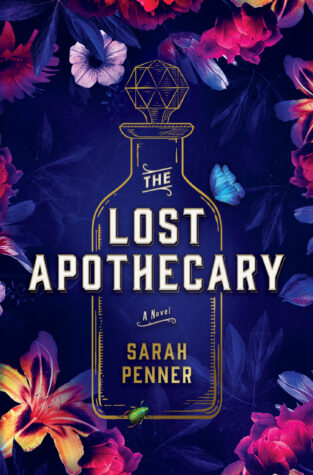
One cold February evening in 1791, at the back of a dark London alley in a hidden apothecary shop, Nella awaits her newest customer. Once a respected healer, Nella now uses her knowledge for a darker purpose – selling well-disguised poisons to desperate women who wished to be free of the men in their lives. But when her new patron turns out to be a precocious twelve-year-old named Eliza Fanning, an unexpected friendship sets in motion a string of events that jeopardizes Nella’s world and threatens to expose the many women whose names are written in her register.
In present-day London, aspiring historian Caroline Parcewell spends her tenth wedding anniversary alone, reeling from the discovery of her husband’s infidelity. When she finds an old apothecary vial near the river Thames, she can’t resist investigating, only to realize she’s found a link to the unsolved “apothecary murders” that haunted London over two centuries ago.
I made the mistake of reading the reviews of this book on Goodreads and I have to say that I’m baffled. It’s rare to find 1-star and 2-star ratings mixed in with 5-star ones, especially when the critical ones are scathing. First, giving a book only one star is suspicious; if a book is that bad, why not stop reading it? Second, writing a book is difficult, especially one that is traditionally published. Issuing a one-star rating is just plain mean. (Incidentally, the book is being translated into forty languages and Fox is developing it as a drama series—not too shabby for a debut novelist). 1 star? I don’t think so.
The Lost Apothecary was an atmospheric page-turner and if I didn’t need to work and sleep, I would have read it straight through. My heart pounded at the delightful twists and turns that were frightening without being gory. Of course, I don’t advocate poisoning your mate to get out of a bad marriage, but the plot was ingenious and well-conceived. In Georgian-era England, women were powerless, and I appreciated how one woman protected others in one of the few ways she could. The three narratives were nicely developed, but the contemporary one was the least effective, a common issue in this genre. I loved the historical detail, the author’s ability to engage my senses, and her vivid depiction of the characters. Although it wasn’t up to my 5-star standards, it was a solid 4.
Genre: Historical Fiction
Read-alikes: The Weight of Ink by Rachel Kadish, The Cottingley Secret by Hazel Gaynor, The Necklace by Claire McMillan
